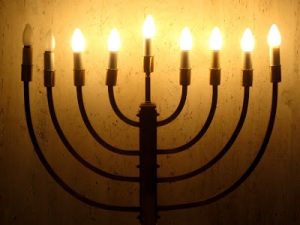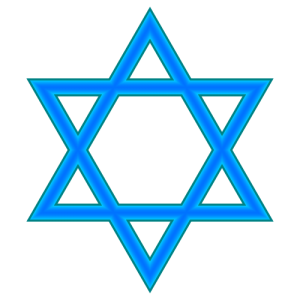We are currently honoring the eight-day observance of the Jewish holiday, Chanukah (also spelled Hanukkah), December 2 through 9. Chanukah traces its history back to the second century Before the Common Era (BCE). At that time, the Jews were under the authority of Antiochus III, the Seleucid king of Syria. His son, Antiochus IV Epiphanes, reversed his father’s tolerance of Judaism. In 167 BCE, Antiochus IV ordered the conversion of the Temple in Jerusalem – the holiest shrine in Judaism – into a shrine to the Greek god Zeus. This in effect meant the eradication of distinctive Jewish practices – an unacceptable turn of events for Jews and an unprecedented move in either Ptolemaic or Seleucid history. 
A revolt ensued, led by Mattathias, a Jewish priest from an area northwest of Jerusalem, and his five sons. One of those sons, Judah/Judas Maccabeus (meaning “hammer”), led the uprising in 164 BCE, resulting in the defeat of the Syrian forces and the purification and re-dedication of the Temple.
We know this history in part from the apocryphal (or deuterocanonical) scriptural writings 1 and 2 Maccabees. 1 Maccabees, originally composed in Hebrew, “was compiled from official written sources, oral tradition, and eyewitness reporting,” making it highly reliable. 1 Macc 4.56-59 describes the eight-day celebration – the origins of Chanukah. It is from the Babylonian Talmud, written around 500 CE, that we hear the story of the oil:
“[U]nadulterated and undefiled pure olive oil with the seal of the [high priest] was needed for the menorah in the Temple, which was required to burn throughout the night every night.…One flask was found with only enough oil to burn for one day, yet it burned for eight days, the time needed to prepare a fresh supply of kosher oil for the menorah. An eight-day festival was declared by the Jewish sages to commemorate this miracle.”
 The Brattleboro Area Jewish Community (BAJC) has organized visible shows of support for different social justice initiatives in downtown Brattleboro during Chanukah this year. Because Chanukah is the “Festival of Lights,” eight local businesses and nonprofits are each lighting candles in their establishments:
The Brattleboro Area Jewish Community (BAJC) has organized visible shows of support for different social justice initiatives in downtown Brattleboro during Chanukah this year. Because Chanukah is the “Festival of Lights,” eight local businesses and nonprofits are each lighting candles in their establishments:
- December 2, Elliot Street Fish ‘n Chips shines a light on the issue of equality for women. This business is owned by three women and employs other young women.
- 3, Twin Flames Taqueria shines a light on antisemitism. This business is owned by people who take pride in their Jewish heritage.
- 4, Twice Upon a Time shines a light on those who struggle with addiction. Twice Upon a Time offers used clothing, jewelry and furniture.
- 5, Altiplano, a small company that sells Guatemalan-inspired jewelry, accessories and décor, shines a light on the issue of homelessness locally and throughout the country.
- 6, at Beadniks, shines a light on the issue of religious freedom. Beadniks is family-owned and operated and has been in Brattleboro since 1992.
- 7, Gallery in the Woods shines a light on the struggles of immigrants to the US. The Gallery will feature Guatemalan art.
- 8, Burrows Specialized Sports, which is owned by an interracial family, shines a light on racial justice.
- 9, Centre Congregational Church, an open and affirming parish, shines a light in support of the LGBTQ community.
May these inspiring examples from a small town in southern Vermont uplift our spirits and spur us on, in our own ways, to strive for social justice for all! Blessings of the holiday season.
Resources
Anonymous, “BAJC to ‘shine a light for social justice’ for Chanukah,” The Commons, November 28, 2018, A4.
Goodman, Martin. “Jewish History, 331 BCE-135 CE,” in Amy-Jill Levine and Marc Zvi Brettler, eds., The Jewish Annotated New Testament: New Revised Standard Version Bible Translation, 507-15. New York: Oxford University Press, Inc., 2011.

